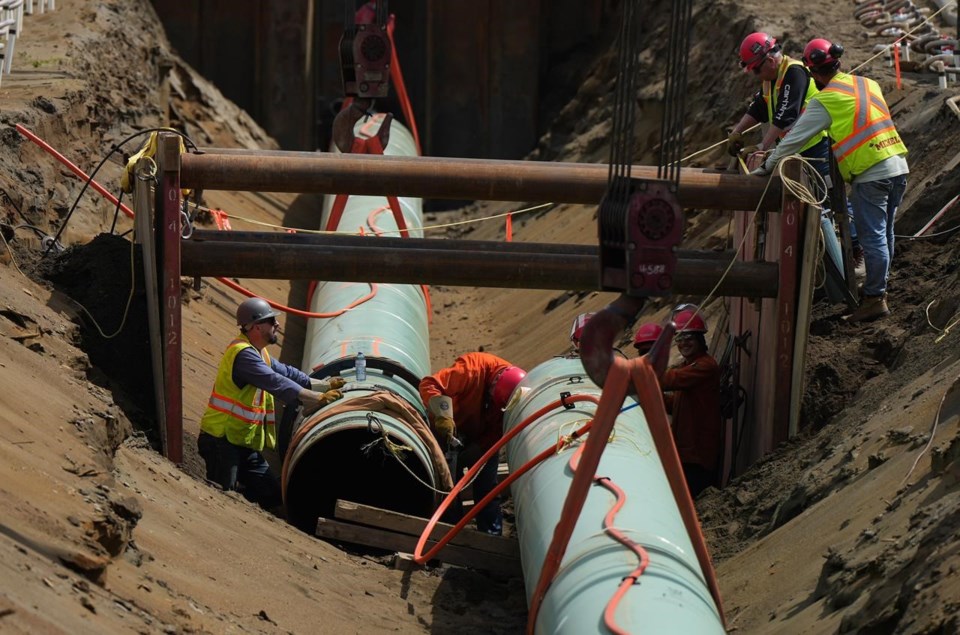CALGARY — The Canada Energy Regulator has released its reasons behind its decision last month to allow Trans Mountain Corp. to go ahead with a pipeline route deviation against the wishes of a B.C. First Nation.
In written reasons released Friday, the regulator said it agreed with the Crown corporation's position that being forced to stick to a previously agreed upon route and construction method despite the difficulties encountered tunnelling through rock in that area would result in unacceptable delays and cost increases.
The regulator also said it accepted Trans Mountain's argument that a denial of the route deviation request would significantly delay the pipeline project's completion, resulting in "many hundreds of millions of dollars in lost revenues" for Trans Mountain as well as negative impacts on oil shippers.
The Trans Mountain pipeline is Canada's only pipeline system transporting oil from Alberta to the West Coast. Since 2018, it has been owned by the federal government, which bought the pipeline in an effort to get its planned expansion over the finish line after the project was scuttled by previous owner Kinder Morgan Canada Inc.
That expansion, which will boost the pipeline's capacity to 890,000 barrels per day from 300,000 bpd currently and improve access to export markets for Canadian oil companies, is now nearing completion.
But Trans Mountain Corp. filed a request earlier this year to slightly alter the route for a 1.3-kilometre stretch of pipeline to be constructed in the Jacko Lake area near Kamloops, B.C.
The corporation said it had run into engineering difficulties in the area related to the construction of a tunnel, and said if it was not allowed to alter its original plan, it would be unable to meet the pipeline's targeted in-service date of early 2024.
Trans Mountain's application was opposed by the Stk'emlupsemc te Secwepemc Nation, whose traditional territory the pipeline crosses and who had only agreed to the originally proposed route and construction method.
The First Nation had said the area has "profound spiritual and cultural significance'' to their people, and that they only consented to the pipeline's construction with the understanding that it would minimize surface disturbances by implementing specific trenchless construction methods.
The Canada Energy Regulator ruled last month in favour of Trans Mountain, expediting its decision with a promise to release its reasons at a later date.
On Friday, the regulator explained its ruling by saying that it accepted Trans Mountain's argument that being forced to continue to attempt tunnelling in the originally proposed area could delay the pipeline's completion by up to 10 months, at a cost of approximately $2 billion in lost operating revenue.
It also said it was unconvinced by the Stk'emlupsemc te Secwepemc's argument that Trans Mountain failed to diligently advance trenchless construction in a timely manner, or that Trans Mountain itself is to blame for the delays and challenges the companies encountered with the tunnel.
But the regulator said even though Trans Mountain can go ahead with the route deviation, it will be expected to uphold its commitments to the First Nation by taking measures to minimize the overall disturbance in the area, enhancing reclamation standards, and continuing to dedicate the time to engage and involve the First Nation throughout the process.
This report by The Canadian Press was first published Oct. 20, 2023.
Amanda Stephenson, The Canadian Press



